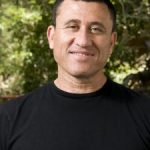Enhanced Decision Making
Researchers at Technion have developed a model that enhances decision-making, based on expert data
This morning we heard on the radio that the chance of rain is very low, only 6%; but the television forecaster just said there was a 35% chance and the weather application shows a 50% chance. So…what should we wear? How should we dress the kids? Should we take an umbrella?
We are all familiar with these minor daily decisions, but also with major decisions: Should we undergo surgery when one of the doctors believes there is a high chance of spontaneous recovery, but another doctor believes surgery is vital? Should we invest in the oil industry when one expert says it is worthwhile since alternative energy has run its course, while another expert says the opposite? Should your child be allowed to vacation in Sinai, Egypt when security experts warn of impending threats, but tourism experts expect peace and quiet?
Many of the decisions we make in our personal and professional lives are made under conditions of uncertainty and are based on forecasts by experts in the field. Even decision-makers in large organizations such as board members and government officials rely on experts’ assessments. If the experts all agree, the decisions are easy; but, in many cases, they disagree and their predictions contradict one another.
Dr. Itay Arieli, Dr. Yakov Babichenko and Assistant Prof. Rann Smorodinsky of the William Davidson Faculty of Industrial Engineering and Management at Technion- Israel Institute of Technology, have developed a new model to weigh expert forecasts and present an operative solution to a problem in certain situations. Their article was published in the National Academy of Sciences journal PNAS.
According to Dr. Arieli, “We propose a mathematical model that allows us to objectively examine the quality of decision making and to build a forecast based on some expert predictions. This is based on an assessment of the quality of the aggregate forecast in the worst possible scenario. For some descriptors (scenarios) we also offer a concrete solution (mathematical formula) to the problem, which provides a very good aggregate forecast. This forecast is close to that of a person who is exposed to all knowledge and data that is held by all experts.”
Dr. Arieli stressed that this is a preliminary study, and therefore includes only simple descriptors.
“In one of the descriptors, for example, it is known that one of the experts has more knowledge than the other expert, but we do not know which one of them has the most knowledge,” he said. “In another article that branched off from the same research, we deal with multi-expert descriptors, in contrast to the current article, which focuses on those in which there are only two experts.”





